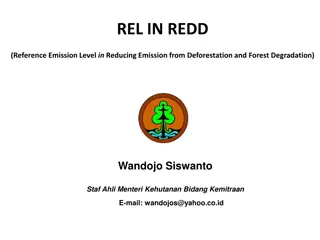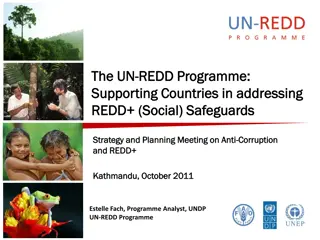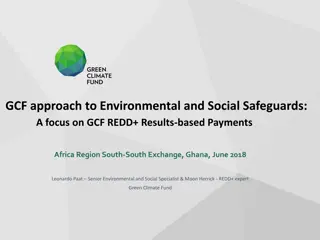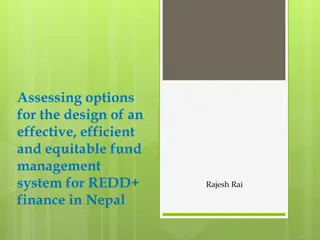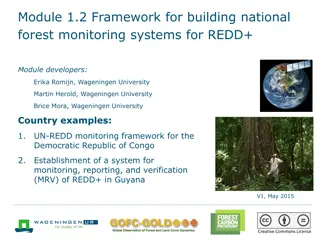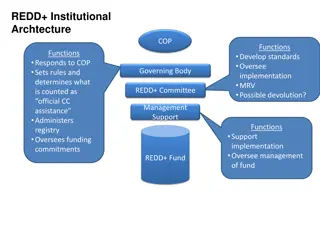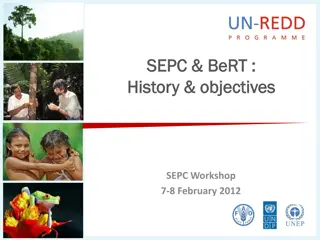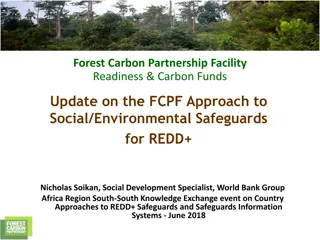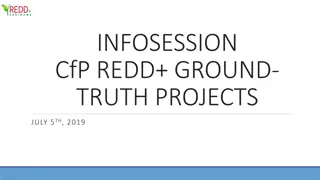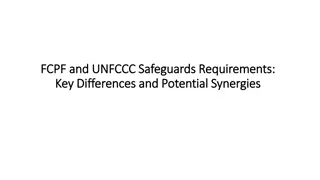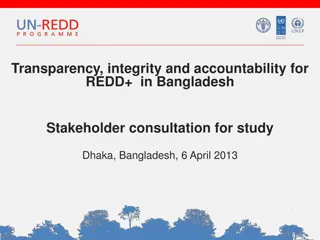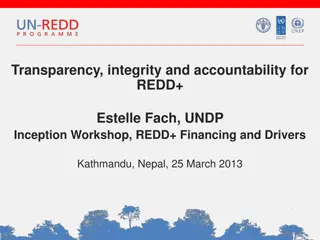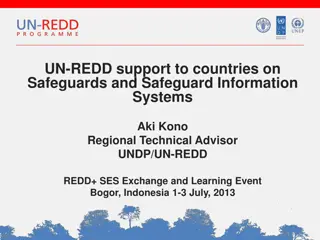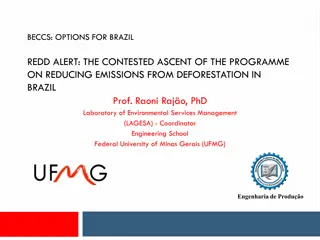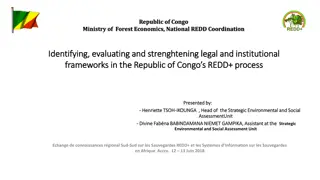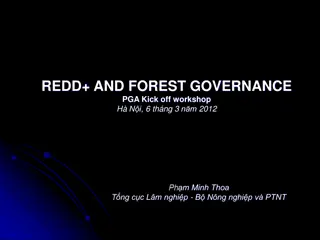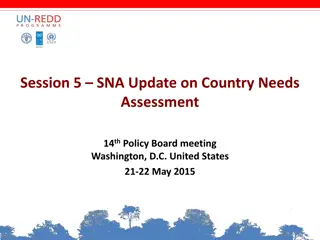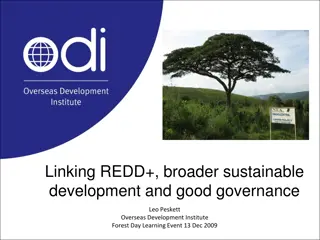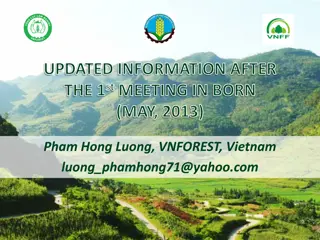Sustainable Governance Assessment for REDD+ Implementation in Indonesia
Sustainable Governance Assessment (PGA) for REDD+ in Indonesia involves building on existing knowledge and experience, engaging stakeholders at national and local levels, forming a panel of experts, and focusing on key assessment areas such as policy quality, institutional capacity, anti-corruption strategies, and community participation. The process includes collaboration with various entities and utilizes the Indonesian Democracy Index framework.
Download Presentation

Please find below an Image/Link to download the presentation.
The content on the website is provided AS IS for your information and personal use only. It may not be sold, licensed, or shared on other websites without obtaining consent from the author. Download presentation by click this link. If you encounter any issues during the download, it is possible that the publisher has removed the file from their server.
E N D
Presentation Transcript
Upcoming PGAs for REDD+ Upcoming PGAs for REDD+ in Indonesia in Indonesia Main components for consideration in Nigeria?
Building on existing knowledge and experience In Indonesia, UNDP has already conducted a governance assessment looking aimed at assisting local authorities to assess progress in 33 provinces using the nationally adopted INDONESIAN DEMOCRACY INDEX (IDI) BAPPENAS (the Planning Commission) has now taken over the work with the IDI, together with the National Statistics Office When PGAs for REDD+ will be conducted in Indonesia, synergies with work on the IDI will be explored and utilized
Stakeholders National level: Instead of a Steering Committee, there will be a working group meeting at regular intervals to discuss the way forward and key areas of relevance for the PGA. These participants are: BAPPENAS (National Planning Commission) REDD+ Task Force (Inter-ministerial working group) Ministry of Forestry AMAN (Leading national network of Indigenous Peoples and their rights) WALHI (Indonesia Forum for Environment)
National and local levels The PGA in Indonesia will look at governance structures and systems at both the national and local levels. Provincial Working Groups in each one of the 11 pilot provinces (from IDI experience) Provinces that have been suggested so far are: Sumatra: Aceh, Riau and Jambi, Kalimantan: West , South, East and Central Kalimantan Papua: West Papua and Papua Sulawesi: Central and Southeast Sulawesi
Panel of Experts Assisting the national working group, a range of experts in the following areas: Research (qualitative & quantitative data collection methods) REDD+ Local governance Legal development Access to justice Gender perspectives Human resource management Anti-corruption
Some main areas for assessment in Indonesia: Although the PGA in Indonesia is at the preparatory phase, some immediate key objectives/areas that have been identified: To assess the quality of policies/legislations which are directly related to the implementation of REDD+ To measure institutional capacity of provincial governments to implement REDD+ To identify important elements of an anti-corruption strategy for REDD+ (referring to UNCAC) To map out existing capacity levels/ challenges & opportunities of IPs and forest-dependant communities with regards to their participation in REDD+
Indonesian framework REDD+ Social principles Criterion 1 Criterion 2 Criterion 3 Criterion 7 1. Policies & legislations Criterion 1 Criterion 2 Criterion 3 2. Institutional capacity of provincial governments Criterion 1 Criterion 2 3. Anti-corruption strategy for REDD+ Criterion 3 Criterion 4 Criterion 5 Criterion 6 4. Participation of forest- dependent communities in REDD+
Methodology 1. Design of the framework: working group (with Panel of Experts) identify key areas to be assessed 2. Design of data collection tools by Panel of Experts, using the following methods: Document review Stakeholder opinion survey In-depth interview Focused group discussion
Process 3. Data collection First trip: admin data / doc review / survey Report on initial pointers emerging from quantitative data Second trip: FGDs / interviews More in-depth research (using qualitative methods) to investigate initial pointers 4. Data processing / report writing 5. Validation with National Working Group & Provincial Working Groups 6. National launch


